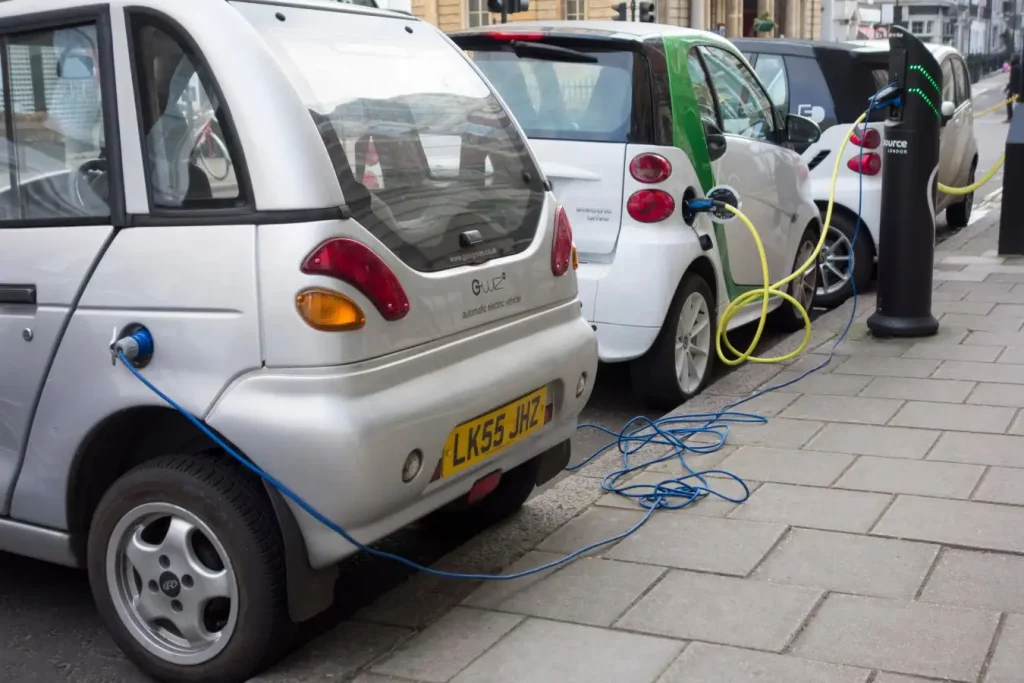Electric vehicles (EVs) have shifted from niche experiments to mainstream transportation, significantly influencing modern lifestyles. From cutting-edge battery technologies to smart in-car systems, today’s EVs offer more than just eco-friendly alternatives—they integrate innovations that affect how we commute, live, and interact with technology on a daily basis. Understanding these advancements is critical for lifestyle-conscious consumers who value convenience, sustainability, and technological sophistication.

Revolutionizing Battery Technology
The foundation of any EV is its battery, and recent innovations are transforming vehicles into practical, high-performance, and eco-conscious options.
Solid-State Batteries: The Next Leap
Solid-state batteries replace the liquid electrolytes found in traditional lithium-ion batteries with solid materials. This innovation significantly improves energy density, allowing EVs to travel longer distances on a single charge. It also enhances safety by reducing the risk of fires and chemical leaks.
Companies like Toyota, QuantumScape, and Samsung are actively developing commercial solid-state batteries, aiming for ranges exceeding 400 miles. According to Toyota’s research, these batteries could allow full charging in just 10–15 minutes under optimal conditions (1).
Fast-Charging Technologies
Alongside battery chemistry improvements, fast-charging systems are revolutionizing EV usability. Modern EVs equipped with advanced thermal management and high-voltage charging capabilities can reach 80% charge in as little as 15–20 minutes. Public and private fast-charging networks are expanding rapidly, addressing range anxiety and making EVs viable for long-distance commuting and road trips.
Battery Recycling and Sustainability
Sustainability is becoming a key lifestyle consideration for EV owners. Companies are now investing in battery recycling solutions, allowing lithium, cobalt, and other materials to be reused efficiently. Tesla and Northvolt, for example, are developing closed-loop recycling systems that reduce environmental impact while lowering production costs (2).
By combining range improvements, faster charging, and sustainable materials, battery technology innovations are making EVs a practical, lifestyle-friendly option for environmentally conscious drivers.
Smart Driving Features That Enhance Lifestyle
EVs today are more than vehicles—they are mobile technology hubs that enhance convenience, safety, and driving experience.
Autonomous Driving Assistance
Advanced driver-assistance systems (ADAS) are becoming increasingly common in modern EVs. Tesla, Rivian, and Mercedes-Benz are integrating features like adaptive cruise control, automatic lane-keeping, and collision avoidance into their vehicles. These systems reduce driver fatigue and improve safety, particularly during daily commuting or long-distance travel (3).
Smart Navigation and Energy Management
EVs now include AI-driven navigation tools that optimize routes based on traffic, battery status, and nearby charging stations. This feature is particularly useful for city dwellers and frequent travelers, as it allows efficient trip planning and ensures drivers are never caught with low battery unexpectedly.
Personalized Driving Experience
Many EVs now allow drivers to customize driving modes, regenerative braking levels, and interior settings. These adjustments create a personalized driving environment that aligns with individual preferences, improving both comfort and lifestyle quality.
Lifestyle-Oriented Vehicle Design
EVs are increasingly designed with the driver’s lifestyle in mind, prioritizing comfort, aesthetics, and connectivity.
Spacious, Minimalist Interiors
Modern EVs often feature open, uncluttered interiors with large digital touchscreens, intuitive control systems, and adaptable seating configurations. Brands like Lucid Motors and Polestar are emphasizing minimalist designs that prioritize passenger comfort while providing high-tech functionality.
Seamless Connectivity
Connectivity is a key aspect of the EV lifestyle. Features like smartphone integration, Wi-Fi hotspots, and cloud-based services allow drivers to stay connected while on the move. Tesla’s software updates, for instance, provide new features remotely, keeping the car’s capabilities up-to-date without requiring a visit to a service center.
Sustainable Materials
Eco-conscious consumers increasingly prefer EVs that use sustainable materials in their interiors. BMW and Polestar incorporate plant-based textiles, recycled plastics, and sustainably sourced materials to create a premium experience without compromising environmental responsibility. This design philosophy aligns with a growing trend toward ethical and sustainable lifestyle choices.
Renewable Energy Integration
EV innovations now extend beyond the car itself, integrating with renewable energy solutions to enhance sustainability and lifestyle convenience.
Solar-Powered Charging
Some EV models, such as the Lightyear 0, offer solar panels that supplement energy usage and reduce reliance on traditional electricity grids. At the household level, solar-powered charging stations allow EV owners to utilize renewable energy efficiently, cutting costs and supporting sustainable living practices.
Vehicle-to-Grid (V2G) Technology
V2G technology enables EVs to supply energy back to the electrical grid during peak demand or power outages. This system not only provides cost savings but also supports energy stability at the community level, turning EVs into active participants in smart, sustainable cities (4).
Home Energy Integration
Integration with smart home systems allows EV owners to automate charging schedules, optimize energy usage, and even remotely control home devices. For example, a vehicle can schedule charging during off-peak hours when electricity is cheaper, improving efficiency and reducing utility bills.
Emerging EV Trends Shaping Modern Lifestyles
Several innovations are likely to shape how EVs fit into daily routines over the next decade.
- Subscription and Shared EV Services
Flexible leasing and subscription models are gaining popularity, allowing drivers to use EVs without committing to ownership. Companies like Canoo and Volvo are offering vehicle-as-a-service options, enabling users to switch cars based on lifestyle needs. - Compact Urban Mobility
City-focused EVs, including electric scooters, small EV cars, and micro-mobility solutions, are changing urban commuting. These vehicles reduce congestion, lower transportation costs, and align with sustainable urban living. - Enhanced Safety and Health Features
Future EVs are integrating air purification systems, UV sanitization, and biometric driver identification. These features cater to health-conscious drivers and families, adding convenience and peace of mind to daily commutes. - Energy Storage and Smart Grids
With improved battery storage capacities, EVs are increasingly capable of storing energy for home use. This feature allows households to manage energy consumption more efficiently, supporting sustainable living even in regions with unstable electricity supply.
The Lifestyle Impact of EV Adoption
EV adoption is not just about technology; it’s about lifestyle transformation. Here are some ways EVs are influencing everyday life:
- Cost Savings: EVs reduce fuel costs and often qualify for government incentives, making them financially attractive. Maintenance is also simpler due to fewer moving parts.
- Sustainable Choices: Using an EV supports environmentally conscious living, aligning with modern values of sustainability and ethical consumption.
- Convenience: Smart features, automated charging, and connected apps simplify daily commuting, freeing time and reducing stress.
- Enhanced Mobility: EVs, including compact and subscription-based models, provide flexible transportation solutions for urban and suburban living.
As technology continues to advance, these lifestyle benefits are expected to expand, making EVs an integral part of modern urban planning and personal convenience.
Conclusion
Electric vehicles are no longer just green alternatives—they are lifestyle enablers. Innovations in battery technology, autonomous systems, design, and renewable energy integration make EVs a practical, convenient, and sustainable choice for modern drivers. From longer ranges and fast charging to intelligent systems and smart home integration, EVs are transforming how people live, commute, and interact with technology. For anyone interested in a future-oriented lifestyle, understanding these key innovations in electric vehicles is essential.
References
- Toyota Research Institute. “Solid-State Batteries and the Future of EVs.” Available at: https://www.toyota.com (Accessed: 21 August 2025).
- Northvolt. “Battery Recycling for Sustainable EVs.” Available at: https://www.northvolt.com (Accessed: 21 August 2025).
- Tesla Inc. “Autopilot and Full Self-Driving Capability.”Available at: https://www.tesla.com (Accessed: 21 August 2025).









